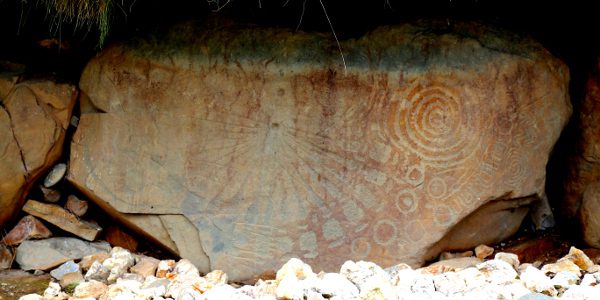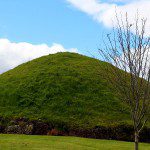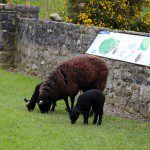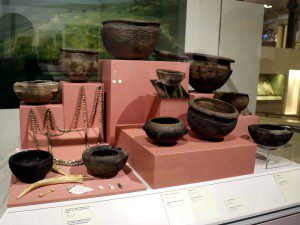
There are three seemingly-random observations from my recent trip that taken together create an interesting proposition for modern Pagans.
The first comes from the short interpretative films in the Celts exhibit, which emphasized how “Celtic” refers to language and culture, not a bloodline. While Celtic people did move across Europe, their influence far exceeded their numbers as people who were already “there” adopted Celtic language and culture. One of the films said “there were many ways to be a Celt” – as you would expect for a culture that spans over 2500 years.
The second is the realization of just how isolated many people were in Neolithic Britain and Ireland. Skara Brae is a 5000 year old village – it’s estimated that it was home to around 20 families. Barnhouse settlement (six miles away) was even smaller. Today, while there are 20,000 people in Orkney, many of the islands are uninhabited and some have no more people on them than lived in Skara Brae. They stay connected by air and ferry services between the islands and to the Scottish mainland.
The third was a point made by the guide at Skara Brae and again by the guide at Maeshowe. From the earliest settlers to today, people from isolated places have come together on a regular basis. They were trading goods, looking for mates and arranging marriages, building alliances and making plans for future raids and exploration. They may have lived on remote islands, but as Gordon White explained in Star.Ships, ancient people had no trouble navigating the ocean, and in any case Scotland and Northern Ireland are only 12 miles apart at their closest.
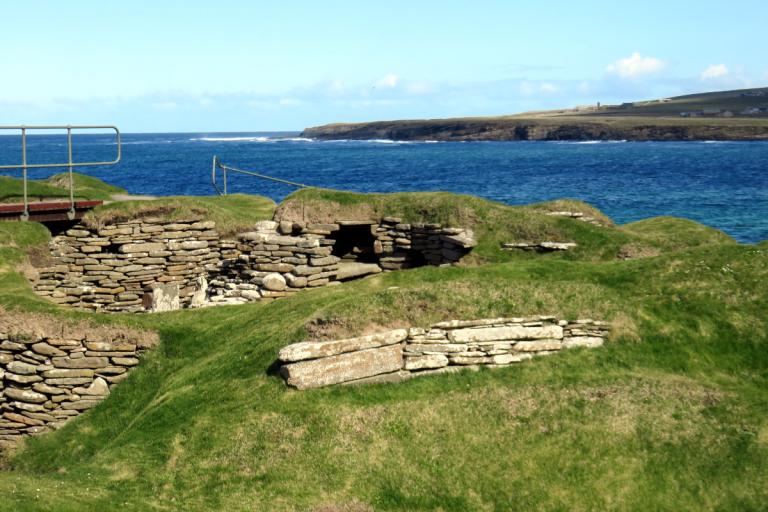
I don’t imagine I’m the only one to see the parallels between these three observations of ancient societies and today’s Pagan community.
There are many ways to be a Pagan. There are Wiccans and Druids and Heathens, polytheists and pantheists and non-theists, expert magicians and those who think magic is impious. While I’ve made it very clear I think it’s best if our many individual traditions put down deep roots and be honest with ourselves and with each other about our differences, I still hold out hope for the Big Tent of Paganism.
And like the Celts, our influence exceeds our numbers. Magic, witchcraft, the Gods, and Nature – all of which are in our Tent – are attractive to the mainstream culture. They don’t always get it right (sometimes to the point of offensiveness), but they’re listening (sometimes) and they’re picking up bits and pieces of Paganism and Pagan culture.
We’re isolated. Most of us live in ordinary neighborhoods and work in ordinary jobs and attend ordinary schools where there are Christians and Muslims and Hindus and atheists, but we’re likely the only Pagans we know. Many of us are part of local groups, but the vast majority of them could live together in Skara Brae with plenty of room left for overnight guests. We have the internet (for which I am thankful), but it’s as much a source of turmoil as it is a source of connections.
We can come together on a regular basis. There are Pagan Pride Days. There is Pantheacon. There are any number of local and regional gatherings. I’ve been to three already this year; I’ll be at Pagans of Texas June 4, at Many Gods West August 5-7, and at CUUPS Convo August 26-28. These gatherings let us see and touch and talk with our fellow Pagans face-to-face. The workshops and concerts are great, but I mostly enjoy the informal conversations you just can’t have anywhere else. These gatherings are also good opportunities to form and strengthen friendships and alliances – relationships we can build on and draw on in times of trouble… or just when you encounter something you’ve never seen before.
As Pagans, we have a complicated relationship with the past. We speak of “the old Gods” and “the old ways” even though we know we’re building religious and spiritual practices for contemporary people living in contemporary times. We honor our ancestors and we try to learn from them even as we’re trying to live so as to be good ancestors for future generations.
Our world is very different from the world of the Celts, Picts, Vikings, and others who inhabited Britain and Ireland thousands of years ago. But there are situations and circumstances that are quite similar, and if we are wise, we will learn from those who came before us.


